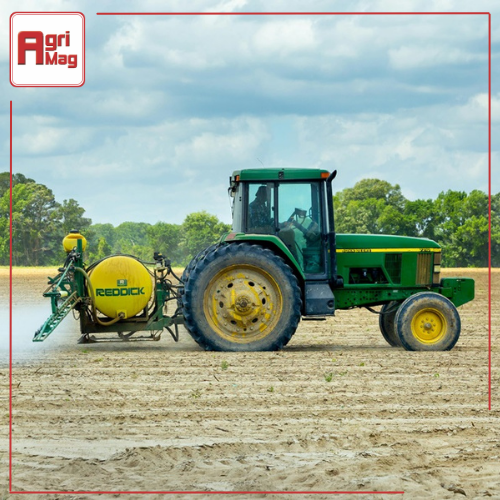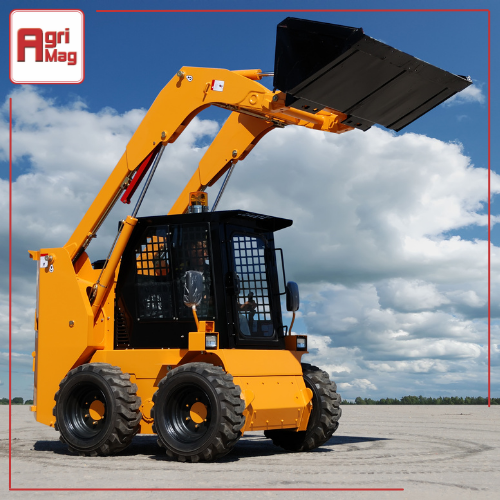
Essential Maintenance Steps to Keep Your Farming Tractor Working
Date: 04/08/2022
Are you a tractor owner and want to keep it in good working order or condition? Farming tractors are indispensable machines for agricultural activities, especially in a country like South Africa, where agriculture plays a crucial role in the economy. To ensure your tractor continues to serve you efficiently, regular maintenance is key. In this guide, we'll outline essential maintenance steps to keep your farming tractor running smoothly. Discover a large selection of used agricultural equipment on AgriMag for any of your business requirements.
 Photo by Juergen Striewski on Pexels
Photo by Juergen Striewski on Pexels
Key maintenance steps to keep your farming tractor in good working order
1. Regularly Check and Change the Oil
One of the most fundamental steps in tractor maintenance is regularly checking and changing the oil. Oil lubricates the engine's moving parts, reducing friction and preventing damage. For farming tractors, where temperatures and working conditions can vary significantly, it's essential to use the correct type of oil and to change it according to the manufacturer's recommendations. Typically, oil should be checked at least once every 100 hours of tractor operation.
2. Maintain the Cooling System
Overheating can be a major issue for tractors, especially in the hotter regions of South Africa. To prevent this, it's important to maintain the cooling system. Check the coolant level frequently and top it up as needed. At least once a year, clean the radiator and check for any leaks or damage. This will help ensure that your tractor’s engine does not overheat, which could lead to significant mechanical failures.
3. Keep the Air Filter Clean
Dust and debris are common in the South African countryside, and they can clog your tractor's air filter. A dirty air filter restricts airflow to the engine, reducing its efficiency and potentially causing damage. Check the air filter regularly and clean or replace it as necessary. This simple step can prevent a lot of engine problems and will help maintain the tractor’s performance.
4. Inspect and Maintain the Fuel System
Fuel system issues can impair your tractor's performance. Regularly inspect the fuel lines and the fuel filter, and replace them if they show signs of wear or damage. Always use clean, high-quality diesel to keep the engine running smoothly. This is particularly important in rural areas where fuel quality can vary.
5. Check the Electrical System
The electrical system, including the battery, alternator, and starter, should be checked regularly to ensure they are functioning properly. Make sure that all connections are secure and corrosion-free. In the damp climate of some South African regions, checking for corrosion is especially important to avoid electrical failures.
 Photo by Ofir Eliav on Pexels
Photo by Ofir Eliav on Pexels
6. Tyre Maintenance
Properly maintained tyres are critical for safe tractor operation. Regularly check the tyre pressure and the tread depth. Adjust the pressure according to the load and the type of terrain to prevent excessive wear and improve fuel efficiency. Also, look for signs of ageing or damage, such as cracks or bulges, and replace tyres as needed.
7. Regularly Check the Hydraulic System
The hydraulic system is vital for the operation of many tractor attachments. Regular checks should include looking for leaks and testing the hydraulic fluid. Change the fluid and filters as recommended by the manufacturer to keep the hydraulic system in peak condition.
8. Keep It Clean
While it may seem superficial, keeping your tractor clean has several practical benefits. Dirt and mud on a tractor can hide issues such as oil leaks, cracks, and rust. Regular washing will not only prolong the life of your tractor but also allow you to inspect the machine thoroughly during the cleaning process.
9. Follow a Structured Maintenance Schedule
Adhering to a structured maintenance schedule is crucial. Each tractor model may have specific maintenance needs, so it’s important to follow the manufacturer's guidelines. Keeping a log of completed maintenance tasks can help track the tractor’s condition and ensure that no important checks are overlooked.
Overall, regular maintenance is essential to keep your farming tractor in good working order. By following these essential maintenance steps, you can ensure the longevity, reliability, and efficiency of your tractor, ultimately maximising its performance and minimising downtime. Whether you're a small-scale farmer or manage a large agricultural operation, investing time and effort into tractor maintenance will pay dividends in the long run. Keep your tractor well-maintained, and it will continue to be a valuable asset for your farming endeavors. For all of your business needs, AgriMag offers a wide range of secondhand agricultural equipment.
Categories:
Common category
Category Search:
Latest articles:

The beginning of the next 100 years of agricultural excellence in SA

What to Look for When Buying a Skidsteer Loader for Farming

Why Planning Early for the Planting Season Pays Off
